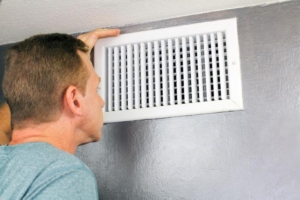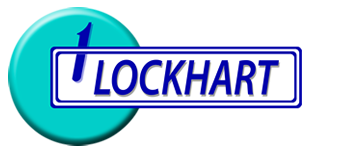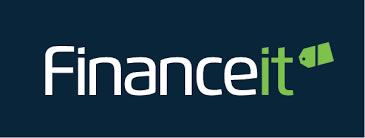Cleaning Your HVAC Vents – Is It Something You Can Do By Yourself?
Indoor air pollution can be a major issue within the household. If your household suffers from allergies or unexplained symptoms, there may be a problem with your ductwork. Since conditions vary between homes, it can be difficult to figure out whether air duct cleaning would be beneficial.
Other contaminants can include cooking, cleaning, smoking, or moving around the house. The cost of the job can depend on the size of the system, system accessibility, climatic region, and level of contamination. But is it worth cleaning your HVAC vents yourself, or simply hiring a professional?
What Causes Excessive Dust and Mold?
If your system isn’t properly maintained or operated, various components within your HVAC system can become contaminated with dust, pollen, hair, and pests. If moisture is present, mold can increase and the spores can potentially release into the home.
That is why it’s important to clean all the components within your HVAC system otherwise a missed component can potentially re-contaminate the whole system again. You should clean your ducts if there’s visible dust and mold growth inside any hard surface (sheet metal) ducts or other components of your heating and cooling system. If there isn’t any indication of large deposits of dust or debris, it may not be necessary, however.
Is It Worth Getting Ductwork Professionally Cleaned?
Unless you have prior knowledge, special rotary brushes, and a high-powered vacuum on hand, you’ll most likely need to hire professionals. During the cleaning of non-metal ducts, vital connections could potentially be torn, which is why it’s a good idea to hire a professional to clean your entire HVAC system.
The presence of mold or pests makes professional cleaning a top priority. When you hire a professional, expect to get your supply and return air ducts, registers, grills, diffusers, heat exchangers, cooling coils, drip pans, fan motor, fan housing, and air handling unit housing to be thoroughly cleaned.
Someone improperly trained could damage your system, creating costly repairs.
Can I Clean the HVAC Ducting Myself?
The short answer is no. Unless you have the proper equipment and knowledge of the system, you’ll likely end up damaging the equipment and potentially cutting yourself on all the screws present inside the ductwork.
While we certainly don’t recommend cleaning your HVAC system yourself, if you know what you’re doing and have previous knowledge of the HVAC system, these are the steps to clean your HVAC system.
- Remove the screws from the air duct covers and the return air grille plates.
- Cover the supply vents so that dust doesn’t get blown around.
- Set the thermostat to “fan on”. This will help move dust that has loosened. If you have an older thermostat, run the heat setting instead.
- Lightly tap the ductwork to loosen dust in the vents.
- Clean the supply registers. With the vacuum running near the register, lift the register and sweep as far as you can into the ducts. Using the microfibre cloth, reach into the duct and wipe the interior clean. As you finish cleaning each supply register, you can remove the paper towel you put in place.
- Clean the return registers. Same steps as cleaning the supply registers.
- Shut off the fan and furnace. Turn off the thermostat and power via the service switch or breaker panel. It’s important to note that turning off the thermostat does not turn off power to the unit.
- Clean out the blower compartment and return air boot, as this is where most of the dust will be. Use the vacuum to remove the dust in the blower compartment and return air boot. Clean out the furnace fan.
- Replace the furnace filter.
If you do find mold or evidence of infestation while cleaning your ducts, contact a professional immediately.
How To Prevent Dust Buildup in HVAC Vents and Ducts
- Use a high-efficiency (HEPA) air filter.
- Change filters frequently.
- Keep cooling coils and drain pans clean.
- Vacuum your home regularly and use a high-efficiency (HEPA) vacuum cleaner and filter bags.
- If you have in-duct humidification, make sure the equipment is running properly.
- Make sure ducts are sealed and insulated properly. This prevents any moisture in attics and crawl spaces.
- Fix water leaks and remove standing water. Moisture should never be present in your ducts.
Investigate Your Dirty Ducts
In most homes, dust will collect within a safe range throughout your ductwork. Your HVAC filters should trap most of the particles in the air, which is even more reason to replace filters regularly.
However, simply cleaning your ducts may not be enough. If you think your ducts may have excessive dust and debris, have a look at your duct registers. Are they coated with a layer of fine, dark dust? Remove the cover, reach into the duct and wipe the sides with a cloth. If there’s a significant amount of dust buildup, it might be time to call in the professionals.
At Lockhart Industries, we’ve been proudly serving happy customers since 1981. Whether you’re inquiring about regular maintenance or investing in a new HVAC system for your home, our dedicated professionals will deliver outstanding and innovative results to suit your needs. To learn more, please contact us for expert service from Duncan to Victoria BC.
Call (250) 748-1731 or request an estimate and get started today.
Easy Financing with…
Start Saving Money NOW! There’s no need to putting off a more Energy Efficient, Cost Effective home comfort system. We make it simple!
With Financeit you can:
- Make additional payments any time without penalty.
- Get a lower payment by choosing an amortization period of up to 180 months. 7.99% to 11.99% interest rate.*
- We add a small fee to the loan amount. There are no hidden or additional charges
- Bank-level encryption (AES-256 bit SSL) to protect your personal information.



